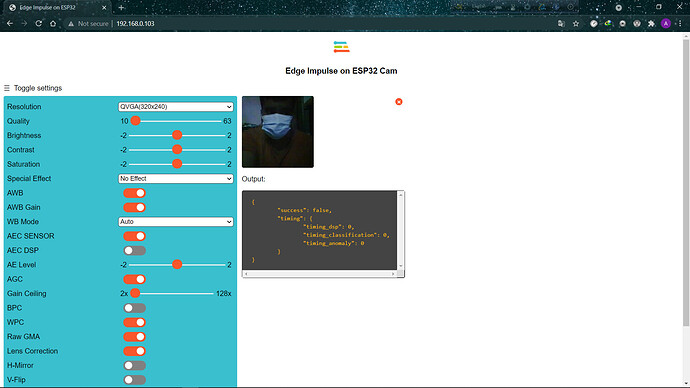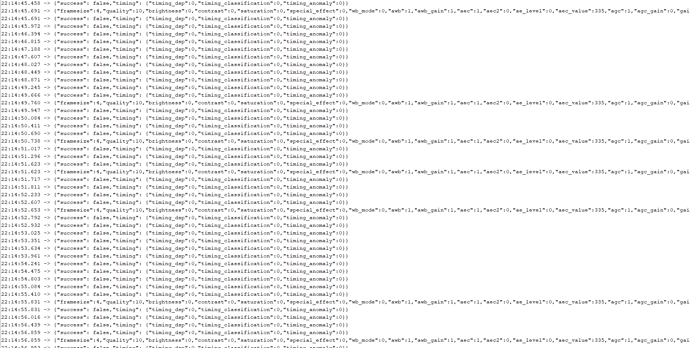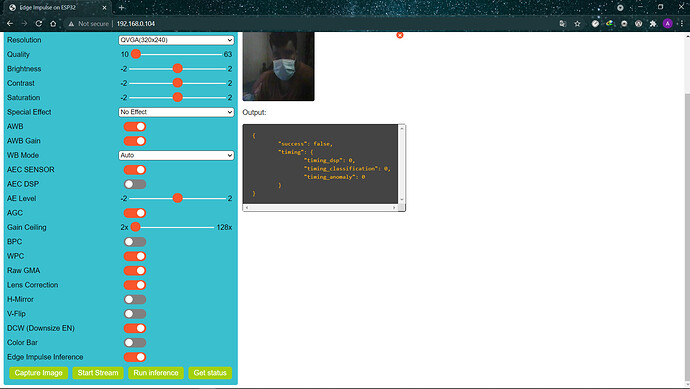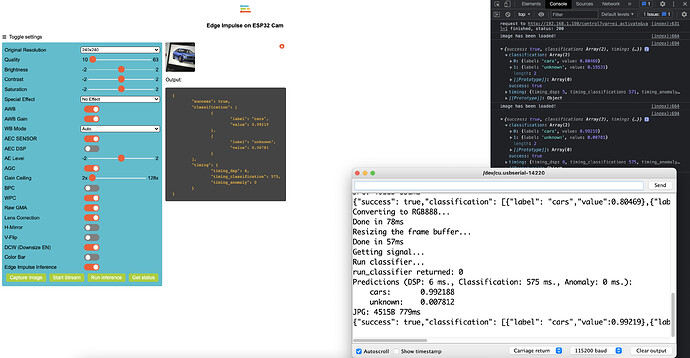I am working on 2 image detection work.
visual emotion detection (happy,anger,Fear).
Mask detection for Covid-19 Pandemic (A man wareing mask or not).
I am using esp32 AI-Thinker Cam arduino board.
When I Run inference, the inference output always (success : false.) . I can give you some screenshot of my failure .
Please help me to overcome this problem.
#TIA
edge7
August 12, 2021, 9:17pm
#2
Are you able to check the serial console output?
Hello @edge7
thank you for your reply.
the serial console give the output like the screenshots.
It can help you to understand the bug.
#TIA
aurel
August 16, 2021, 8:18am
#5
Hi @charles13 ,
Could you enable the run_classifier debug flag?
EI_IMPULSE_ERROR res = run_classifier(&signal, &result, true /* debug */);
Aurelien
Hello @aurel
Thank you for reply.
yes my app_httpd.cpp file has this run_classifire debug line.
But till it give output { success: false}.
aurel
August 16, 2021, 11:11am
#7
Can you set the last argument to true and retry?
EI_IMPULSE_ERROR res = run_classifier(&signal, &result, true /* debug */);
Hello @aurel
thanks again For reply.
yes I set the last argument true and try, but I got same outputs, even on changing resolutions.
louis
September 15, 2021, 10:04am
#9
Hello @charles13 ,
Could you try again with the latest changes we made on this repository and tell us if it works for you?
We have changed mostly this function that was causing many issues:
size_t out_len = EI_CLASSIFIER_INPUT_WIDTH * EI_CLASSIFIER_INPUT_HEIGHT;
int raw_feature_get_data(size_t offset, size_t out_len, float *signal_ptr)
{
size_t pixel_ix = offset * 3;
size_t bytes_left = out_len;
size_t out_ptr_ix = 0;
// read byte for byte
while (bytes_left != 0) {
// grab the values and convert to r/g/b
uint8_t r, g, b;
r = ei_buf[pixel_ix];
g = ei_buf[pixel_ix + 1];
b = ei_buf[pixel_ix + 2];
// then convert to out_ptr format
float pixel_f = (r << 16) + (g << 8) + b;
signal_ptr[out_ptr_ix] = pixel_f;
// and go to the next pixel
out_ptr_ix++;
pixel_ix += 3;
bytes_left--;
}
return 0;
}
Here is what I have:
Regards,
Louis




